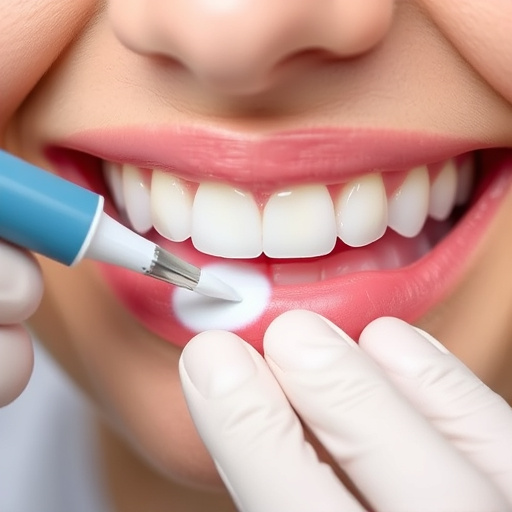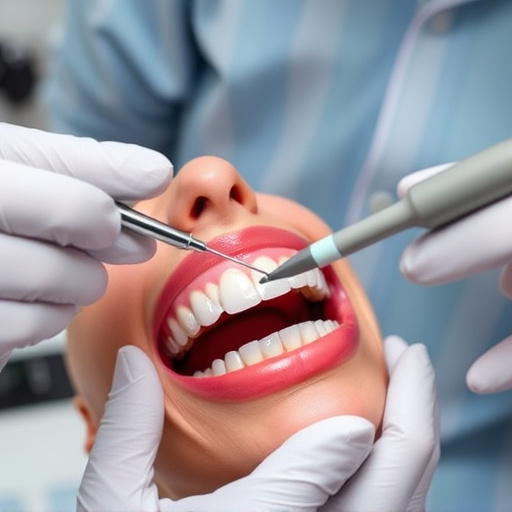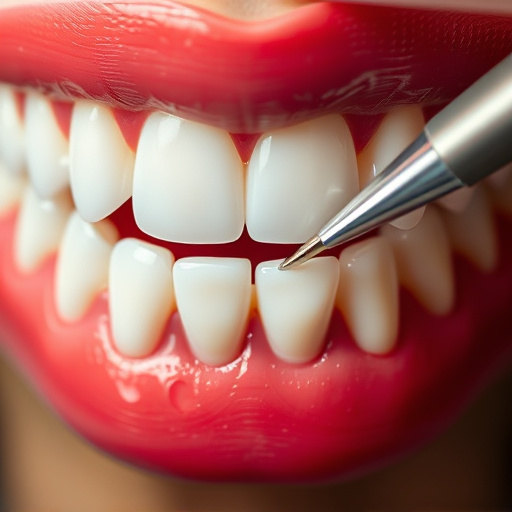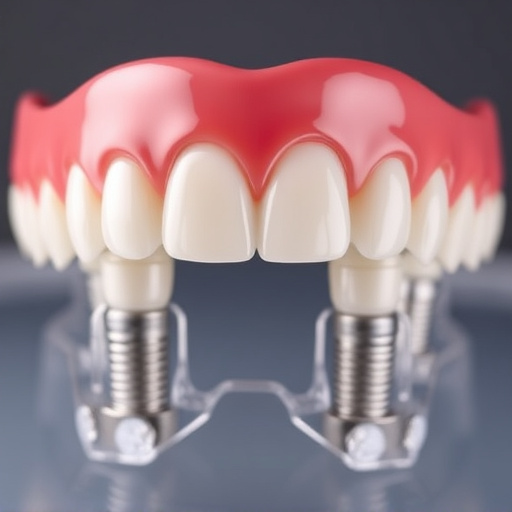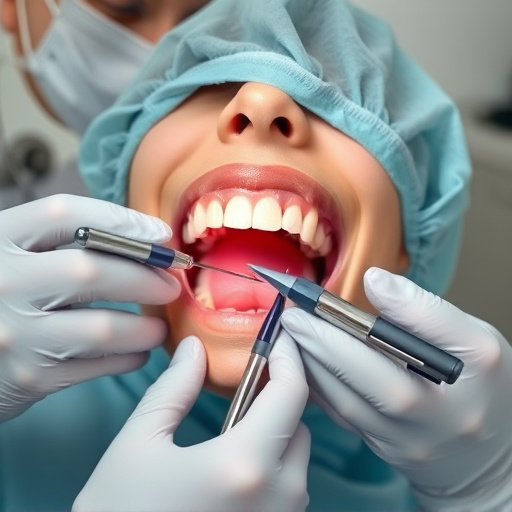Oral cancer, a global concern, requires awareness of its insidious nature and risk factors for timely detection. Regular dental cleanings are crucial for early identification of potential risks through oral cancer screenings. During routine exams, dentists look for suspicious lesions and use tools to access hard-to-reach areas, significantly improving treatment outcomes and survival rates by identifying abnormalities or signs of cancer at early stages. Incorporating these screenings into regular family dentistry appointments is a proactive step towards maintaining oral health and promptly addressing potential issues.
Oral cancer, though often overlooked, is a significant health concern. Early detection through regular oral cancer screening can significantly improve treatment outcomes and save lives. This article delves into the importance of oral cancer screening, exploring key risk factors, symptoms, and how timely intervention plays a pivotal role in effective management. Understanding these aspects underscores the necessity of incorporating oral cancer screening into routine healthcare.
- Understanding Oral Cancer: Risk Factors and Symptoms
- The Role of Early Detection in Effective Treatment
- How Oral Cancer Screening Can Save Lives
Understanding Oral Cancer: Risk Factors and Symptoms
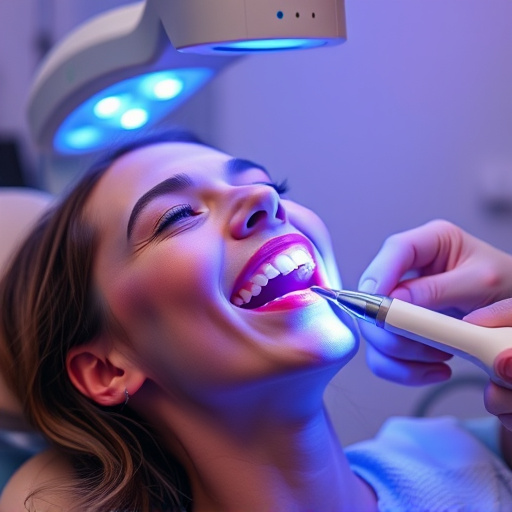
Oral cancer, a potential threat to overall health, is a growing concern worldwide. Understanding its insidious nature and risk factors is paramount in early detection. This type of cancer can develop on any part of the oral cavity, including the lips, gums, tongue, cheeks, floor of the mouth, or pharynx. While it may not always present noticeable symptoms in its early stages, certain risk factors include tobacco use, excessive alcohol consumption, a history of oral cancer, and poor oral hygiene. Symptoms can later manifest as discolored lesions, lumps, or pain in the mouth that persists for more than two weeks. Regular dental cleanings and comprehensive dental care play a vital role in oral cancer screening, allowing dentists to identify potential risks and symptoms early on. Even subtle changes in your mouth could be indicative of an underlying issue, emphasizing the importance of staying proactive with clear aligners and professional examinations.
The Role of Early Detection in Effective Treatment
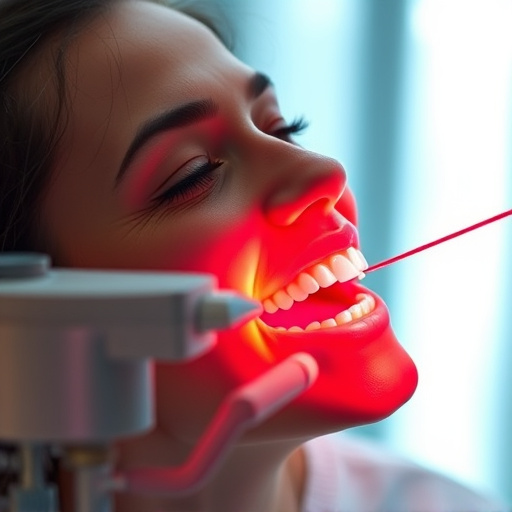
Early detection plays a pivotal role in the effective treatment of oral cancer. Regular oral cancer screening is an essential step in this process, as it allows dentists to identify any abnormalities or potential signs of cancer at their earliest stages. This early intervention can significantly improve treatment outcomes and increase survival rates. When detected early, oral cancer is often more treatable with less invasive procedures, preserving the patient’s quality of life and minimizing side effects.
During a routine oral exam, a dentist can carefully examine your mouth for any suspicious lesions, sores, or discolored patches that may indicate the presence of cancerous cells. Additionally, dental crowns, which are used to restore and protect damaged teeth, can also aid in screening by providing better access to hard-to-reach areas for a comprehensive evaluation. By incorporating oral cancer screening into your regular family dentistry appointments, you take a proactive step towards maintaining your oral health and ensuring any potential issues are addressed promptly.
How Oral Cancer Screening Can Save Lives
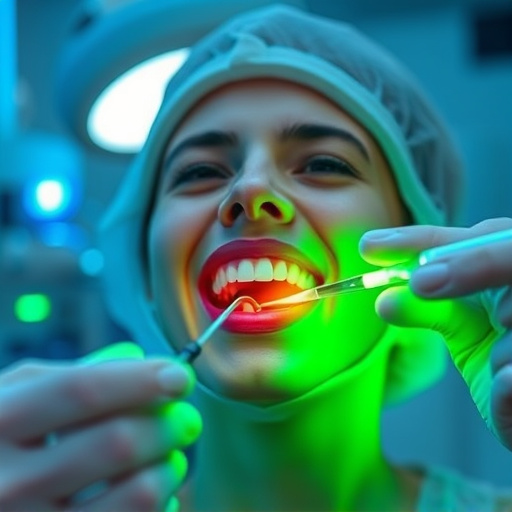
Oral cancer screening is a powerful tool that can save lives by detecting cancerous cells at an early stage. This simple yet vital process plays a crucial role in the fight against oral cancer, which, if caught late, can be life-threatening. During a routine dental check-up, dentists can perform an oral cancer screening using various methods, including visual examination and specialized tools that detect abnormalities in the mouth, tongue, gums, and lips.
Early detection is key to improving treatment outcomes. Many times, oral cancer may not present any noticeable symptoms, making it difficult for individuals to recognize potential issues. Regular dental cleanings and check-ups combined with routine oral cancer screenings can ensure that any abnormal growths or lesions are identified promptly. This allows for quicker intervention and often leads to more effective treatment, including less invasive procedures and higher survival rates. Additionally, these screenings can also uncover pre-cancerous conditions, enabling dentists to provide appropriate care before cancer develops.
Oral cancer screening is a powerful tool that can significantly improve outcomes for patients. By identifying potential risks and symptoms early on, medical professionals can facilitate effective treatment and potentially save lives. This essential practice plays a pivotal role in the battle against oral cancer, ensuring folks receive timely care and a brighter future.



